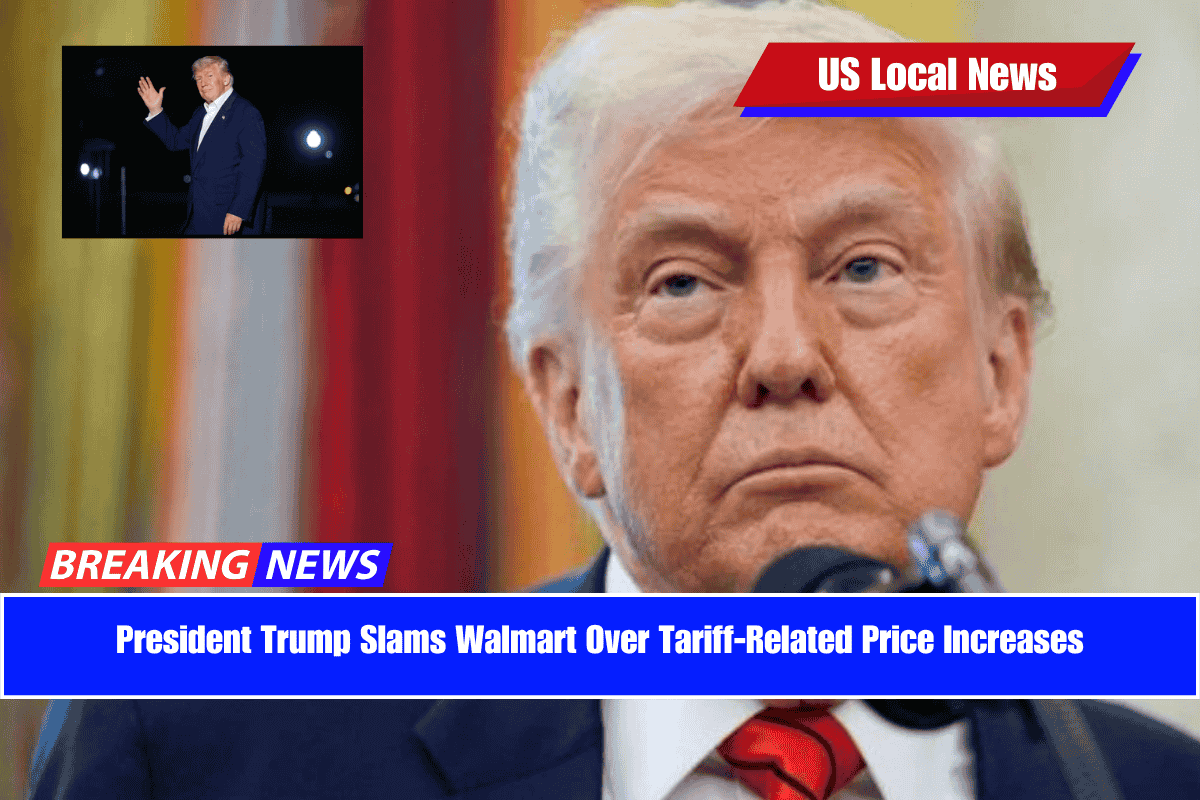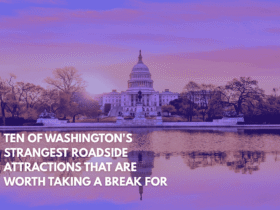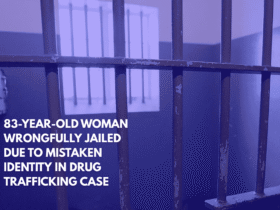President Donald Trump criticized Walmart in a Truth Social post on Saturday, demanding that the retail giant “eat the tariffs” rather than pass increased costs onto consumers. His comments follow Walmart’s recent warning that prices for everyday items — including bananas and car seats — could soon rise due to import duties imposed by Trump’s administration.
Walmart Warns of Price Hikes
In a quarterly earnings call on Thursday, Walmart CEO Doug McMillon said the company is doing its best to control what it can.
“Even at the reduced levels, the higher tariffs will result in higher prices,” McMillon explained.
Walmart’s CFO John David Rainey added that items like car seats imported from China could see a 29% price jump, pushing the cost from $350 to $450. Despite strong first-quarter performance, the company is preparing for consumer pushback as new price hikes take effect later this month.
Trump Responds: “Walmart Should Stop Blaming Tariffs”
President Trump responded sharply, claiming Walmart should use its profits to absorb the added costs rather than passing them on to customers. He posted:
“Walmart made BILLIONS OF DOLLARS last year, far more than expected. Between Walmart and China they should, as is said, ‘EAT THE TARIFFS,’ and not charge valued customers ANYTHING.”
Trump also warned that he and Walmart’s customers would be watching closely.
Walmart Defends Its Position
In a statement to CBS News, Walmart said it always tries to keep prices low and will continue to do so.
“We’ll keep prices as low as we can for as long as we can given the reality of small retail margins,” a spokesperson said.
The Broader Business Challenge
Walmart is just one of many U.S. companies feeling the pressure from Trump’s trade policies. While Trump has insisted that foreign producers would pay the tariffs, most economists — and company leaders — argue that the burden often falls on American businesses and consumers.
Trump’s tariffs — which have included steel, aluminum, autos, and pharmaceuticals — have caused disruptions across supply chains. Retailers, automakers, and tech companies have all reported higher costs and tighter margins.
Many businesses have already lowered or withdrawn their full-year projections, citing decreased consumer spending as prices rise.
Tariff Details and Global Trade Policy
Recently, the administration lowered tariffs on China from 145% to 30% for a 90-day period, but many goods are still heavily taxed. Trump has also maintained a 10% baseline tariff for most countries and imposed 25% tariffs on imports from Mexico and Canada over immigration and drug trafficking issues.
Despite criticism, Trump continues to promote tariffs as a revenue source and a tool to bring jobs back to the U.S. He says new trade deals with the U.K. and other partners are on the way, though most are expected to retain the baseline 10% duty.











Leave a Reply